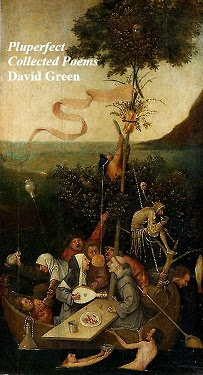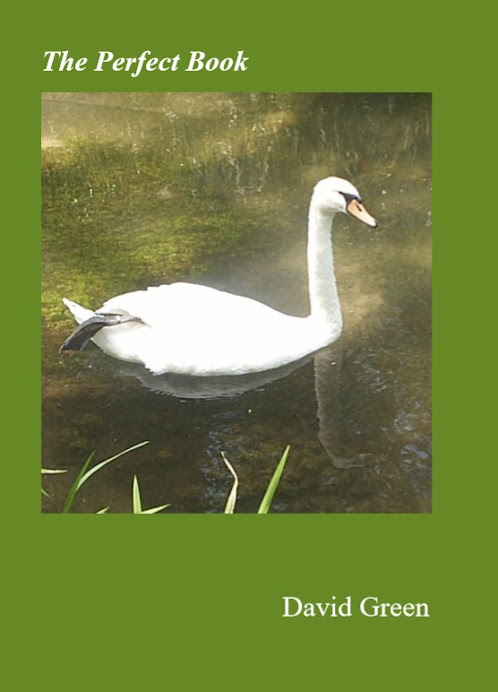I don't know if I've read a happy biography. The ending is inevitably downbeat. Perhaps David Bowie's meticulously planned departure made an artful job of it, perhaps one shouldn't see the inevitable as downbeat or perhaps it's me, insisting on life's minor key passages or, indeed, mostly reading the biographies of poets who, as a type, may tend towards being troubled misfits.
It might have been a radio life of Bob Marley that first made me think of biography as a sub division of tragedy. The early days of the Wailers calling out of studio windows to passing girls - including, I think, Rita- were bound to seem ephemeral in the light of the strange circumstances of his untimely death, notwithstanding the outlandish success of a career that put Jamaica up among the top echelon of pop music-producing countries. Nothing lasts forever, Carpe Diem, Sic Transit Gloria Mundi, etc, etc.
Georges Simenon was prolific, wildly successful at what he did, with an immense energy for it but he wasn't happy and the final chapters of Pierre Assouline's biography are essays of assessment, the most profound of which reflect on his offspring. His only daughter, Marie-Jo committed suicide aged 25, the victim of a number of neuroses but the comparison is made with Lucia Joyce. Both of them were deeply loved by their fathers but their fathers were unable to help.
I'm not entirely convinced that any parallels that might be drawn are due to their fathers' devotion to their writing. There will be any number of desperate cases not recorded in the biographies of authors. It is also inconclusive whether writers are significantly more melanchloic than non-writers but Sartre's 'grocer who dreams' that he thought was 'an offence to the customer' has a life also but not one that is investigated and written about like that of a famous writer. Perhaps it should be. One dispenses fruit and veg for a living and the other writes books but that's essentially the only difference between them.
--
Next up is Harold Larwood by Duncan Hamilton. The real business of the fallout of the 'bodyline' test series of 1932-3 is yet to come but will soon enough as it is a quick, straight-forward read. What we have so far, though, is some evocatively written insight of what now sound like barbaric lives in mining Nottinghamshire, a regime of strict Methodism and improbable gentlemen and players apartheid. It was a hard ball existence and cricket was a hard ball game.
Arthur Carr, captain of Notts, is an improbable hero in a cast of characters that by now belong in Ripping Yarns more than real life but there is evidence that they were real and anybody who thought the likes of Botham, Boycott, David Boon, Merv Hughes represented an age in which cricket had 'characters' might need to think again.
--
One can suffer from fatigue in any undertaking. It is a tribute to the dedication of the likes of Larwood that they pressed on. I wouldn't. I've possibly seen enough of a season of horse racing by now and am happy to leave the annual plus where it is. I never quite realized how the football season drags on, either, until cashing in my bet on the divisions which now looks almost certainly a decision that passed up half of the profit. But, never mind. I won but should have won twice as much. It's just that it is a long haul, designed more than anything to persuade its followers to part with as much cash as it can. It's not the actual amounts that matter as much as that my little personal involvement could have been a yet more impressive win.
It is tiring, though, and good to have other things to turn to. The Easter recess put a hole in the music schedule but there's some good dates coming up, beginning with Inspīrātĭo Ensemble It is to be hoped my adjectives come back refreshed as a very promising line-up of gigs leads up to summer.
Brahms has been composer of the month, or more, here, with the 6 discs of Piano Works so closely following upon the violin and viola sonatas. The pianists are a variety but that doesn't prevent it being a 'cycle'. For the most part it is pleasing if not compelling listening, and ideal accompaniment to reading as such but not always music that demands one puts the book down.
That is until disc 6 with the opus 116-119 sets but I had Stephen Hough doing them already. It will not be filed on the shelves until I've been though from disc 1 again.
--
And, needless to say, something to write helps one to have a sense of purpose which isn't as easily come by as it was when attending paid work was a necessity.
A long, long time ago I can still remember when I regarded poetry as such a purist activity that I didn't want to write anything else but, like so many things, 45 years is long enough for things to go full circle. Even Larkin, by far best remembered for his poems, has a gravestone that says 'Writer', on account of his essays, jazz reviews and relatively minor novels. Yes, let's be that.
On a much less memorable scale, I'd put my poems first but I like doing the essays now, too. I have since done better than the one short story that appeared in print in the 1980's but I don't appear to be fitted for the prose job. That was convincingly demonstrated by the novel which was only done for the sake of having done such a thing. The play owes rather too much to All Gas and Gaiters but it is one. C20th serves as a poetry manifesto.
I need to improve in the novel department but you know it ain't easy, you don't know how hard it can be. Finding the lost, last ISBN number and in due course producing the last David Green (Books) title is more likely to be achieveable.














